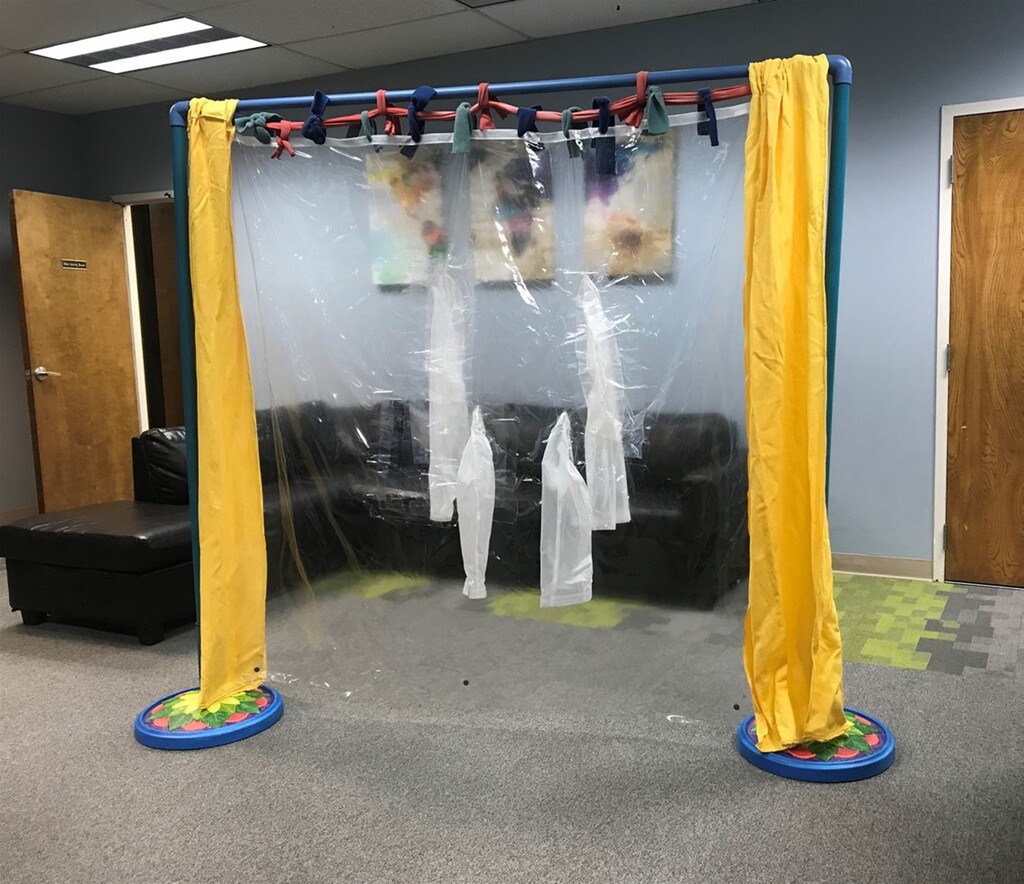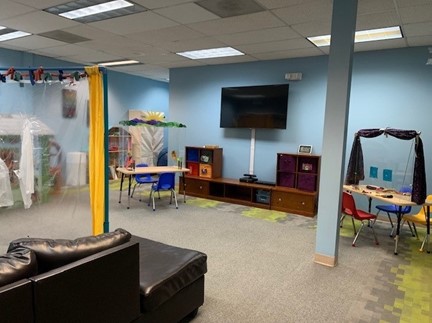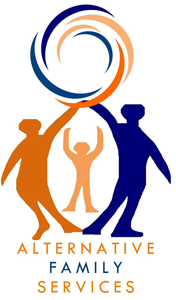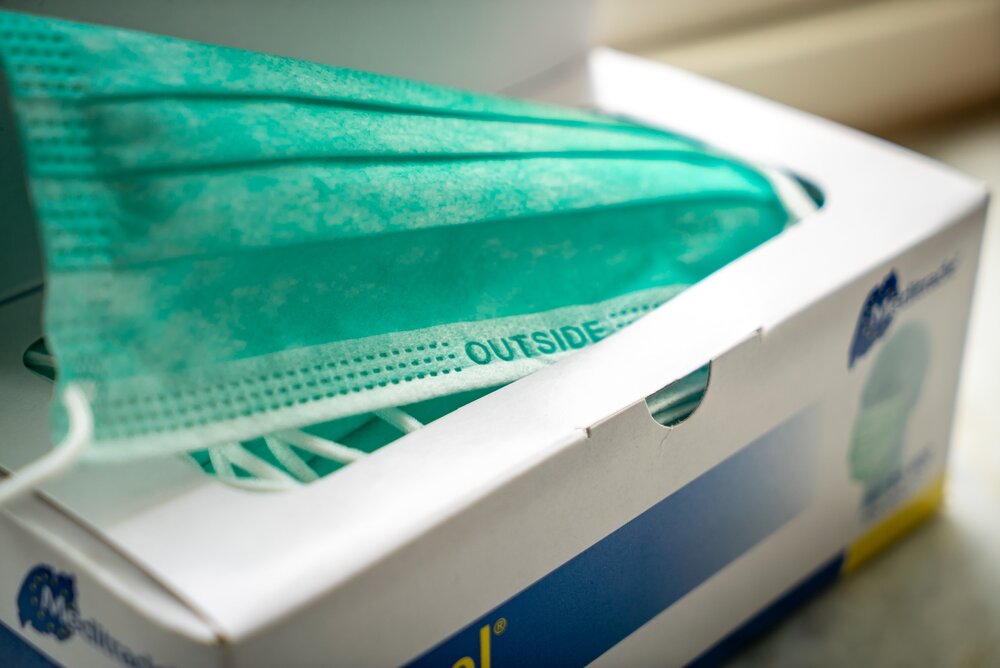How AFS Pivoted to Accommodate In-person Visitation During COVID-19
Too often great ideas are kept in-house without recognizing their potential to create change beyond the communities where they are born. COA’s Innovative Practices Award (IPA) identifies, documents, and celebrates examples of successful approaches to management and service delivery practices adopted by our accredited organizations.
In 2020, a committee made up of COA volunteers and staff selected 4 finalists to move forward with a full case study. Alternative Family Services (AFS) came out the winner. Read on to find out how the AFS Enhanced Visitation Model kept families in touch during the crisis of COVID-19.
Helping families stabilize, heal, and reunify is an essential part of the work at Alternative Family Services. In-person visitation between kids in foster care and their biological family members is an integral part of the therapeutic process. The frequency of visits between parents and their kids are one of the strongest predictors of the family reuniting. The COVID-19 pandemic exacerbated the challenges kids and families must overcome on their journey towards reunification.
As the magnitude of the COVID-19 pandemic became more apparent, AFS staff and clients were suddenly faced with the reality that in-person visitation between kids and their family may be halted, or at the very least severely restricted. The ever-changing state and county guidelines added uncertainty and stress to the situation. Since many of our AFS staff, biological families, and foster families are considered a “higher-risk” demographic to have serious consequences from COVID-19, there was palpable fear in conducting in-person visits. AFS staff knew it was critical for families to continue to stay connected, especially during such uncertain times. So, a taskforce was formed that included representation from key AFS stakeholders. The group was asked to create a safe and equitable plan that would allow in-person visitation to resume. After much input and deliberation, the Enhanced Visitation Model was approved.
Exploring the AFS Enhanced Visitation Model
Health Risk Assessment
It was important for AFS staff to evaluate and address client’s COVID-19 concerns and mitigate the risk of individual exposure to the virus. The taskforce sought input from its constituents, researched professional resources, and ultimately developed the “Wellness Questionnaire.” Staff can rapidly administer this assessment tool to determine COVID-19 risk factors each visitor had been exposed to within the 14 days prior to an in-person visit.
Visitation Service Plan
A “Visitation Service Plan” is a simple, flexible, and predominately check-box/circle-based tool that seamlessly incorporates the risk factors identified in the “Wellness Questionnaire,” assigning families to one of three visitation service levels according to COVID risk level:
- Community-based (Low Risk): local government, community mandated precautions only (masks, handwashing, appropriate hygiene precautions)
- Social Distance Enhanced (Moderate Risk): physical distanced “Enhanced Visitation Venues” required
- Virtual Visitation (High Risk): virtual visitation only
AFS staff wanted to provide therapeutic strategies in a fun, genuine, and safe environment regardless of their Visitation Service Plan. Once the assessment and planning tools were established, staff needed to create pandemic-safe stations for families to interact.
Enhanced Visitation Venues
When families have a positive, stress-free visit, they are more likely to retain and practice the therapeutic skills they learn. So, AFS staff developed a variety of indoor and outdoor “Visitation Venues” that are fun, affordable, replicable, and portable. The visitation venues meet COVID-19 safety protocols so parents and their children can safely interact. Here are some examples of our indoor and outdoor venues:
Indoor Visitation Venues

- The Hugging Station provides families with the opportunity to physically embrace, parents and children put on arm-length disposable gloves before reaching through sleeves attached to a transparent plastic curtain so they can safely hug during the pandemic. The Hugging Station can be easily decontaminated after each use.
- Activity Tables feature a Plexiglas divider, which sits on a table with parents on one side and child(ren) on the other. Participants can paint outlines of each other, play Tic-Tac-Toe or jointly create drawings with dry-erase markers, among other options.
- The Interactive Puppet Theater is where kids and parents make easy-to-construct sock puppets to safely “perform” in the puppet theater. It was designed with a table, clamps and Plexiglas with precut holes modified with rubber shields. AFS organized one-hour sock puppet workshops for staff so they can teach clients how to construct their own puppets for this playful encounter.
- Gaming Stations featuring video game consoles and large television screens allow families to play video games together while sitting at least six feet apart from one another, to ensure proper social distancing.

Curious to see what these options look like? Check out this video that highlights our indoor visitation venues.
Outdoor Visitation Venues
Since research has shown COVID-19 is less likely to spread between individuals while outdoors, AFS staff has developed a variety of safe outdoor venues that can easily be setup and disinfected after each use. When visits occur in the parking lots of one of our offices, artificial turf and gymnastic mats provide ground cover for families to play outdoor games. Pop-up tents provide shade when necessary, and bikes and tricycles are provided for families to ride together (staff uses a Clorox Total 360® Disinfectant Cleaner between uses).
AFS Visitation in 2021
The AFS Enhanced Visitation Model, funded with the assistance of the Walter S. Johnson Foundation, was the winner of COA’s 2020 Innovative Practices Award. While we were humbled to be selected, we are always striving to be innovative when it comes to providing the highest level of care to our children and families. At the end of every Enhanced Visitation Session, staff collects feedback from families to see what they like and what they feel has room for improvement.
While we are thankful that the COVID-19 vaccine is being distributed, AFS will continue to adhere to our Enhanced Visitation Model for the foreseeable future to ensure that staff, families and resource parents remain safe.
The views, information and opinions expressed herein are those of the author; they do not necessarily reflect those of the Council on Accreditation (COA). COA invites guest authors to contribute to the COA blog due to COA’s confidence in their knowledge on the subject matter and their expertise in their chosen field.

Alternative Family Services
Founded in 1978, Alternative Family Services (AFS) provides thoughtful, informed care, adoption and mental health services to foster children and youth throughout Northern California. The mission of Alternative Family Services is to support vulnerable children and families in need of stability, safety and wellbeing in their communities.
AFS, a COA-certified foster family agency, currently serves the diverse and varied needs of 1,500 foster youth, plus their biological and foster families, in the San Francisco Bay Area and Greater Sacramento Regions. Services provided by AFS include therapeutic foster care, Intensive Services Foster Care, support for foster children with developmental disabilities, therapeutic visitation, community-based mental health services, transitional housing support, independent life skills training, and much more.



